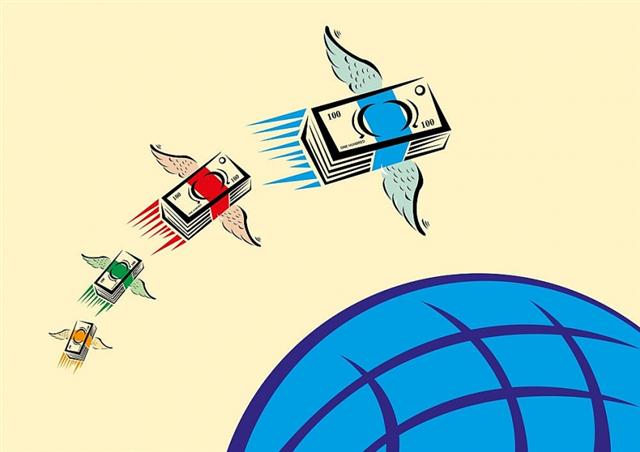Remittances to experience sharpest decline in history due to COVID-19
Remittances to experience sharpest decline in history due to COVID-19
Global remittances are projected to drop by 20 per cent in 2020 – the sharpest decline in history because of the economic fallout stemming from the COVID-19 pandemic.
The projected fall in remittances, which would be the sharpest decline in history, is largely due to a fall in the wages and employment of migrant workers, who tend to be more vulnerable to loss of employment and wages during an economic crisis in a host country, according to the latest report of the World Bank.

Remittances to experience sharpest decline in history due to COVID-19
|
Remittance flows are expected to fall across all World Bank Group regions, most notably in Europe and Central Asia (27.5 per cent), followed by Sub-Saharan Africa (23.1 per cent), South Asia (22.1 per cent), the Middle East and North Africa (19.6 per cent), Latin America and the Caribbean (19.3 per cent), and East Asia and the Pacific (13 per cent).
Remittances to South Asia are projected to decline by 22 per cent to $109 billion in 2020, following the growth of 6.1 per cent in 2019.
Last year, Vietnamese expatriate workers sent home approximately $17 billion, equivalent to 6.5 per cent of Vietnam’s GDP.
The total amount has made Vietnam the world’s ninth biggest remittance beneficiary.
The money has been on an upward trend for the last 20 years, with around $1.3 billion in 2000.
However, remittances to low- and middle-income countries are projected to fall by 19.7 per cent to $445 billion, representing a loss of a crucial financing lifeline for many vulnerable households.
“Remittances are a vital source of income for developing countries. The ongoing economic recession caused by COVID-19 is taking a severe toll on the ability to send money home and makes it all the more vital that we shorten the time to recovery for advanced economies,” said World Bank Group president David Malpass.


























